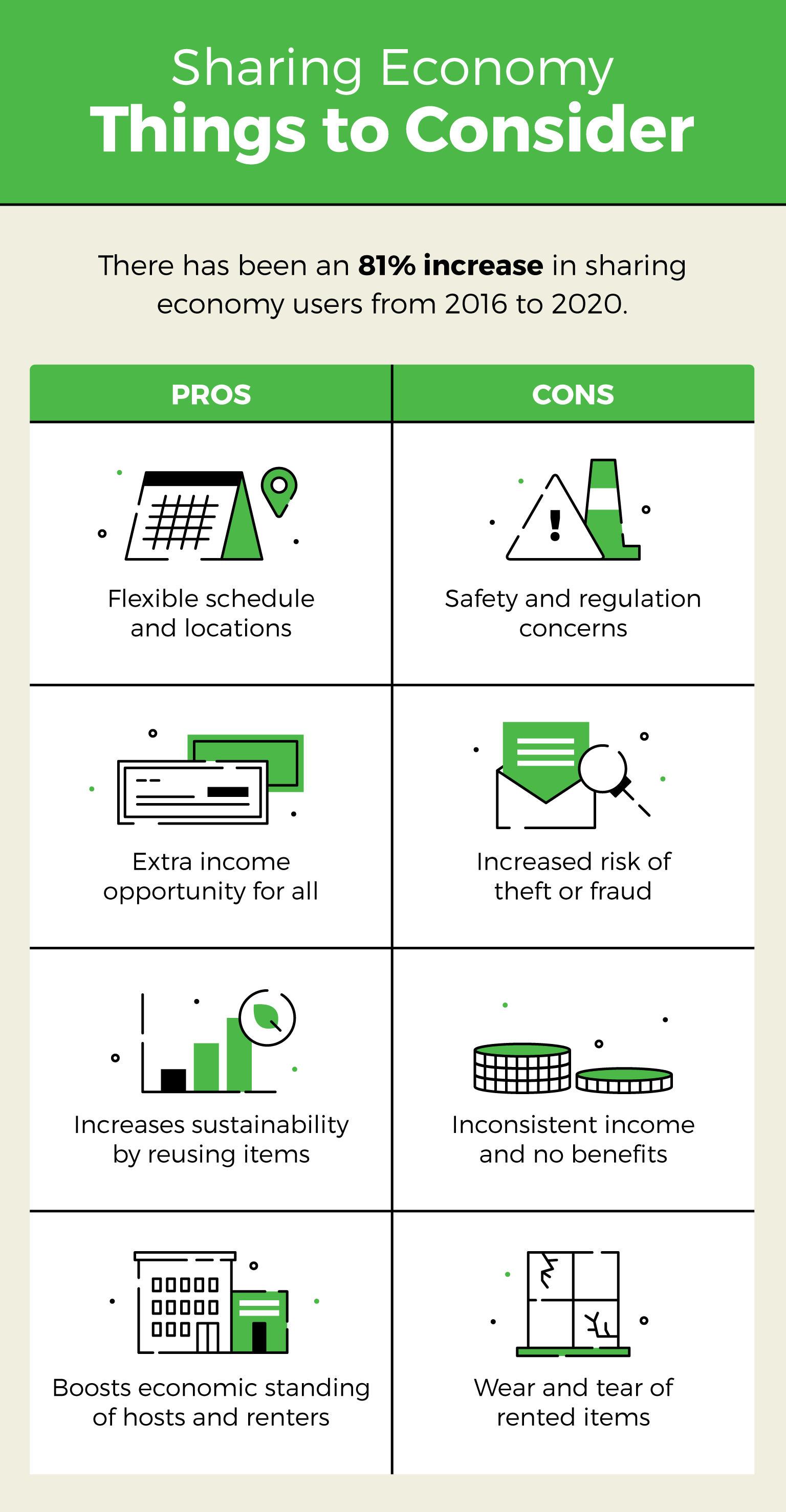
With the recent outbreak of COVID-19 many people are turning to the sharing economy to make an income. This is a relatively new way to buy and sell goods and services that has grown in the last four years. A guide led by The Simple Dollar explains the platforms that facilitates the process.
Items from video games to renting a home can be sold or rented on these platforms. People can even sell their services like cleaning, tutoring and personal training. To learn more about how the sharing economy can be helpful during a pandemic, check out our pros and cons.

Pros of the Sharing Economy
The sharing economy provides opportunities for anyone to earn an income. While consumers are quarantined at home, it opens up the opportunity to go through unused belongings to see if there is anything that you think someone else might find useful.
Flexible schedule
The unique part about a sharing economy that sets it apart from anything else is the flexibility that buyers and sellers have. Whether it be for a small item or for renting a property, users can choose when and how they make payments. This means you can choose to make the payment online or in person.
Users have the choice of meeting for an exchange at an agreed upon location, or shipping any items. This helps combat the spread of germs because users can choose to ship with no contact, or facilitate a safe exchange on their own. The best part is that the buyer and seller get to choose what they are most comfortable with, which is essential during a pandemic.
Increases sustainability
The nature of the sharing economy encourages the reuse of items because it boosts the amount of resources that stay in the economy. For example, rather than throwing away the gym equipment you never use, you can sell it to someone who will use it.
Cons of a Sharing economy
With the sharing economy being so new to the market, there are not many government regulations to protect buyers and sellers. Some services do offer protection plans, but some will only suggest you get your own coverage. So, it’s important that you are aware of the risks before taking part in the sharing economy.
Unpredictable income and no benefits
On the flipside, it can be a difficult way to make a consistent living, especially during a pandemic. Whether you are selling your used products, renting out your home or offering a service, it’s likely that many people are tight on money right now. Many people use the sharing economy as a second source of income to have a sense of reliability. Depending on your niche, you will want to decide if you think you can make a living off the sharing economy.
Risk of contamination
A majority of the sharing economy purchases involve a physical interaction to exchange goods and payments. This is a perfect opportunity for germs and bacteria to spread from one to another. There are some services that offer shipping, so utilize those as much as you can. However, if you do need to make contact with another person, be sure to do it wisely. There are ways you can make contactless exchanges. Be sure to wear gloves and a mask during any exchange and sanitize anything that changes hands.
The sharing economy is a useful tool for making an income. Aside from personal gains, it can bring communities closer and promote environmentally friendly business. Explain the benefits and safety measures to your friends and family. Have them try it out to help build a trustworthy sharing economy for during and after COVID-19.








